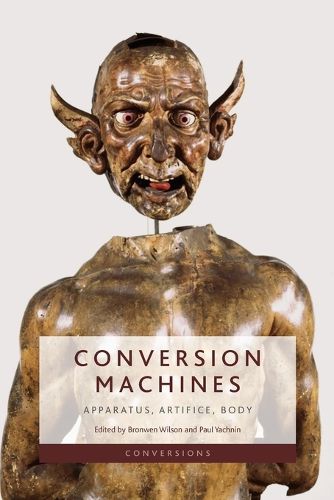Readings Newsletter
Become a Readings Member to make your shopping experience even easier.
Sign in or sign up for free!
You’re not far away from qualifying for FREE standard shipping within Australia
You’ve qualified for FREE standard shipping within Australia
The cart is loading…






Conversion machines are apparatuses, artfully-fashioned preparations, arrangements and things that demonstrate processes of change. They are paradoxical at once intent on verifying what was invisible, uncertain and even unknowable, while also acting as sowers of dissimulation. This study does not seek to mechanise conversion. In many ways, conversion and the transformation of the convert will remain ineffable. Instead, this collection maintains that conversion of all kinds must unfold in ecologies that include politics, law, religious practice, the arts and the material and corporeal realms. Shifting the focus from subjectivity toward the operations of governments, institutions, artifices and the body, contributors consider how early modern Europeans suffered under the mechanisms of conversion, how they were sometimes able to realise themselves by dint of being caught up in the machinery of sovereignty, how they invented scores of new, purpose-built conversional instruments and how they experienced forms of radical transformation in their own bodies.
$9.00 standard shipping within Australia
FREE standard shipping within Australia for orders over $100.00
Express & International shipping calculated at checkout
Conversion machines are apparatuses, artfully-fashioned preparations, arrangements and things that demonstrate processes of change. They are paradoxical at once intent on verifying what was invisible, uncertain and even unknowable, while also acting as sowers of dissimulation. This study does not seek to mechanise conversion. In many ways, conversion and the transformation of the convert will remain ineffable. Instead, this collection maintains that conversion of all kinds must unfold in ecologies that include politics, law, religious practice, the arts and the material and corporeal realms. Shifting the focus from subjectivity toward the operations of governments, institutions, artifices and the body, contributors consider how early modern Europeans suffered under the mechanisms of conversion, how they were sometimes able to realise themselves by dint of being caught up in the machinery of sovereignty, how they invented scores of new, purpose-built conversional instruments and how they experienced forms of radical transformation in their own bodies.